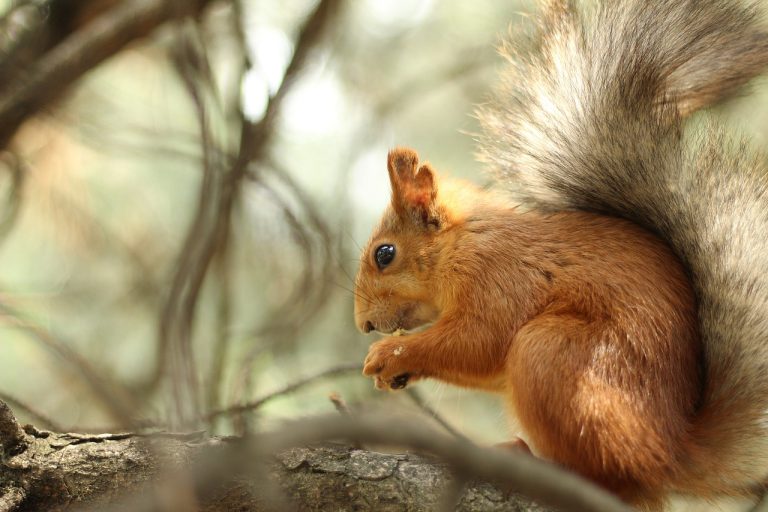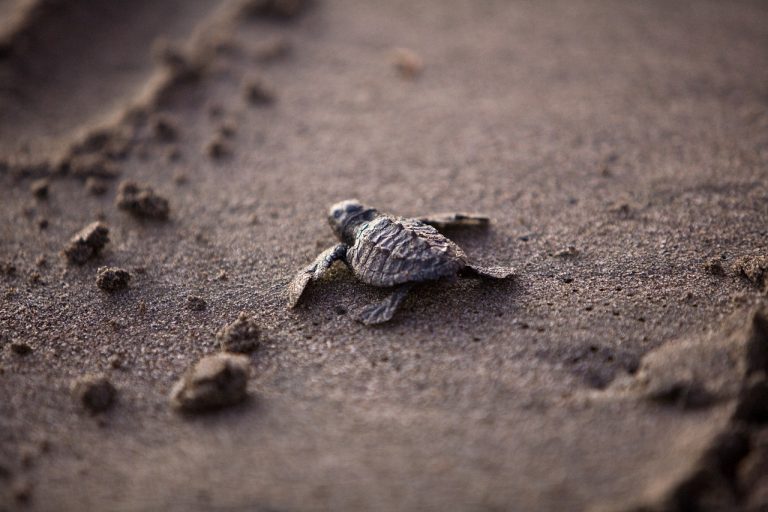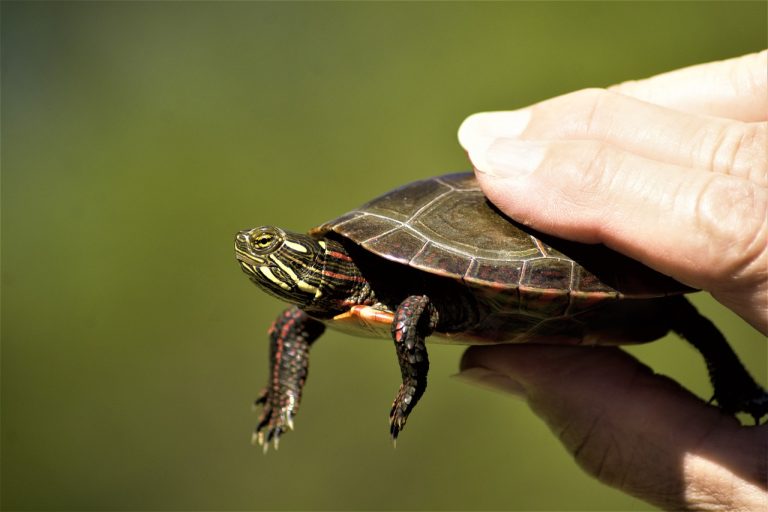Can Turtles & Tortoises Eat Bananas?
Turtles and tortoises come in all shapes, sizes, and colors, but one thing they all have in common is their love for food. If you’re a caring pet owner, you naturally want to offer your little buddy the best diet possible. You might be considering bananas as a potential treat for your turtle or tortoise. But, are bananas a safe choice for them?
Well, the answer is a bit nuanced. Bananas are generally fine for turtles and tortoises in moderation. However, it’s essential to be mindful of their high sugar content, which could pose health risks if consumed excessively. Interestingly, some tortoise species are better off avoiding bananas altogether.
So, while bananas aren’t off-limits for your reptilian friend, whether they should indulge in them regularly is up for debate.
In the following discussion, we’ll cover everything you need to know about offering bananas to tortoises. This includes diving into their nutritional value, potential health benefits, the risks associated with overindulgence, different tortoise species, serving suggestions, and more. Let’s ensure your pet’s diet is as enriching and balanced as possible.

Can Turtles Digest Bananas?
Absolutely, the answer is a resounding “yes”! Turtles might just have a soft spot for bananas. These yellow wonders are packed with nutrients that are crucial for your turtle’s well-being, like potassium, magnesium, vitamin B6, and a host of other essential minerals.
Now, while bananas can certainly bring some health perks to the turtle table, their hefty dose of sugar and calories does raise a few caution flags.
Just like us humans, overindulging in bananas could spell trouble for your turtle’s tummy. Too many of these fruity treats might stir up some unwanted gastrointestinal issues, like gas and diarrhea.
Here’s the deal: bananas come loaded with sugar, and they’re chock-full of fiber too. It’s this combo that can throw your turtle’s digestive system a curveball.
And let’s not forget, excessive sugar intake isn’t exactly a recipe for good health – for turtles or humans! It can lead to all sorts of nasty side effects, including packing on those extra pounds.
So, while bananas can be a tasty addition to your turtle’s menu, it’s best to keep their intake in check to ensure they stay in tip-top shape!
Are Bananas Safe For Red-Eared Sliders To Eat?
The red-eared slider holds its place as one of the most beloved pet species worldwide. Pet owners, always on the lookout for the best care, have experimented with various feeds for their turtles, and bananas have certainly made their way into the mix.
Bananas bring a wealth of nutrients to the table and are deemed safe for turtle consumption. You can offer these yellow delights to your turtles without fretting over their well-being.
However, there’s a catch – bananas come with a hefty dose of sugar. While they offer nutritional benefits, it’s crucial to monitor how frequently your turtles indulge in them to avoid any potential harm.
Too much sugar from bananas can lead to a host of health issues for your turtles, including pesky gastrointestinal problems like bloating and diarrhea. Keeping an eye on their banana intake ensures your shelled pals stay happy and healthy.
Are Bananas Safe For Painted Turtles To Eat?
Painted turtles and red-eared sliders share similar dietary preferences. However, bananas should only be an occasional treat for them.
Are Bananas Safe For Aquatic Turtles To Eat?
All marine turtles follow a similar dietary principle. While bananas can be a nutritious snack for aquatic turtles, it’s essential to limit their banana intake to no more than 10% of their total caloric intake.
How To Feed Your Turtles Bananas?
So, you’ve decided to treat your turtle to a banana? Here’s the lowdown on how to do it safely.
First things first, remember that bananas aren’t meant to be a regular part of your turtle’s diet. They should be considered a rare indulgence, with no more than 10% of their overall food intake coming from bananas.
Now, as your turtle nibbles away on its banana, keep a watchful eye. Different turtles have different tastes – older ones might enjoy fruits and veggies, while younger ones tend to prefer meatier fare.
Oh, and here’s an important tip: always peel the banana before offering it to your turtle. Banana peels can contain toxins that could harm your pet if ingested.
Before you go bananas with the banana treats, there are a few other things to consider:
- It’s best to wait until your turtle is at least a year old before introducing bananas, as they likely wouldn’t encounter them in the wild.
- Consult with your veterinarian before adding any new fruits to your turtle’s diet. They can provide valuable guidance on what’s safe and healthy.
- After your turtle has indulged in some banana goodness, keep a close watch on it for a few hours, as well as in the following days.
- Avoid mixing bananas with other fruits in your turtle’s diet.
- If you notice any adverse reactions like diarrhea or vomiting after feeding bananas, it’s best to steer clear of them in the future.
Remember, moderation is key when it comes to treating your turtle, so keep those banana snacks occasional and enjoy watching your little buddy savor the taste!
Can You Feed Bananas To A Tortoise?
Bananas boast a range of health benefits thanks to their nutrient-rich profile. Yet, when it comes to incorporating them into a tortoise’s diet, the amount and suitability can vary depending on the species.
Regardless of the specific species, it’s crucial to offer bananas to tortoises in moderation. While fruits offer essential nutrients for fruit-eating animals, bananas might not always be the optimal choice.
- Sweet but Not Always Suitable
Let’s talk sugar. A medium-sized banana packs around 15 grams of the sweet stuff, as per the Harvard School of Public Health.
Now, when it comes to tortoises, sugar tolerance varies among different species. Grazing fellows like the sulcata find sugar a bit hard to digest, which could spell trouble for their health.
On the flip side, tortoise species that have a fruity appetite, like the red-footed and yellow-footed tortoises, may handle the sugar rush a bit better.
But here’s the scoop: opting for low-sugar fruits is the way to go. Think strawberries, raspberries, blackberries, and blueberries – they’re all great, guilt-free substitutes.
- Potassium Overload
Bananas are bursting with potassium, but tortoises might not be the best candidates for this potassium-packed treat. High levels of potassium have been linked to kidney issues in reptiles. - Balancing Act: Calcium vs. Phosphorus
Let’s dive into the calcium-phosphorus ratio. Bananas, unfortunately, don’t quite measure up. In every 100 grams, you’ll find a mere 5 mg of calcium and 22 mg of phosphorus.
Now, in the wild, tortoises rock a calcium-to-phosphorus ratio of at least 4:1, according to the British Chelonia Group.
Why’s this ratio crucial? Well, calcium is the building block for sturdy shells and skeletons. While bananas serve up potassium aplenty, tortoises crave more calcium, and the two minerals are tightly linked.
Here’s the kicker: when calcium levels go up in the blood, phosphorus levels take a nosedive. But too much phosphorus can leach calcium from bones, leading to bone loss and potentially kidney issues down the road.
So, while bananas might seem like a tasty treat, it’s essential to keep an eye on the sugar and mineral content to ensure your tortoise’s health stays on track.
Are Bananas Safe For Sulcata Tortoises To Eat?
African tortoises, commonly known as sulcata tortoises, thrive in arid, sandy, and dry habitats. Their diet primarily consists of plant matter like cacti, weeds, grass, and hay, which are abundant in their natural environment.
However, when it comes to bananas, it’s a different story. These tropical treats are loaded with sugar, which can spell trouble for sulcata tortoises. Their digestive systems aren’t equipped to handle such high sugar content, potentially leading to digestive issues like diarrhea.
Overindulging in fruits like bananas can also disrupt nutrient absorption, which means your tortoise might not be getting all the essential nutrients it needs from its food.
So, while bananas might seem like a tasty treat, it’s best to steer clear of them when it comes to feeding your sulcata tortoise to ensure its health and well-being.
Are Bananas Safe For Red-Footed Tortoises To Eat?
Both the red-footed and yellow-footed tortoises bask in tropical climates, where their diet knows no bounds—they happily munch on both animal and plant-based proteins.
In their natural habitat, these resourceful tortoises don’t hesitate to seize the opportunity for a fruity snack when they come across fallen fruit from trees.
Thanks to millennia of evolution, their digestive systems have adapted to handle larger sugar loads more efficiently.
Yet, even with their sugar-savvy guts, indulging in bananas should be a rare treat. Opting for fruits lower in sugar and boasting a better phosphorus-to-calcium ratio is the wiser choice.
For instance, mangoes, honeydew, and papaya are favored picks among tortoise keepers. And the red-footed tortoises? They particularly relish strawberries, perhaps enticed by their vibrant red allure.
Are Bananas Safe For Leopard Tortoises To Eat?
Found primarily in South Africa, Ethiopia, and Somalia, leopard tortoises thrive in arid, dry environments, much like their sulcata counterparts.
Like sulcatas, leopard tortoises are herbivores, with their diet ideally consisting of 50-80% plants and greens. Fresh vegetables make for a nutritious addition to their meals.
Interestingly, leopard tortoises can manage without fruit in their diet. Their digestive systems aren’t geared towards processing fruit efficiently, as they rarely encounter it in the wild.
While an occasional nibble on a banana won’t hurt, leopard tortoises should avoid indulging too much at once to prevent any tummy troubles.
Can Tortoises Eat Banana Leaves?
Tortoises can safely munch on banana leaves in moderation, as they’re non-toxic. These leaves are not only readily available but also cost-effective when purchased in bulk.
While you might find them in regular grocery stores, your best bet is to check out Asian grocery stores for a wider selection.
And don’t fret too much about pesticide residues. Banana leaves are typically cleaned and trimmed for culinary use, minimizing any potential contamination. A quick rinse should suffice to wash away any remaining dirt or debris. If you want to store them for later, simply pop them in a plastic bag and freeze them for long-term preservation.
Feeding your tortoise banana leaves could actually be beneficial for their health. These leaves contain high levels of epigallocatechin gallate (EGCG), an antioxidant compound also found in green tea, which can offer antioxidant benefits to your shelled buddy.
Is The Banana Peel Safe For A Tortoise To Eat?
Tortoises have a natural instinct for recognizing banana peels as a delectable treat, drawn to their vibrant yellow color and coarse texture. Luckily, these peels pose no harm to tortoises, as they’re devoid of toxins.
However, it’s essential to be mindful of potential chemical residues and insecticides present in non-organic banana peels. Opting for organic bananas and thoroughly washing or boiling the peels can mitigate this concern.
Inside those humble peels lie a treasure trove of nutrients, including potassium, amino acids, polyunsaturated fats, and fiber. Interestingly, unripe or green bananas pack even more nutrients than their fully ripe counterparts.
Rich in polyphenols and carotenoids, banana peels boast powerful antioxidant properties, bolstering the body’s defenses against illness.
While bananas are indeed a nutritious and tasty addition to a tortoise’s diet, moderation is key due to their high sugar content. Offering them as an occasional treat ensures your shelled friend enjoys the benefits without overindulging.
How Are Bananas Beneficial For Tortoises And Turtles?
Let’s explore the positive impacts of including fruits, like bananas, in the diet of turtles and tortoises:
- Vitamins:
Bananas pack a punch when it comes to essential vitamins such as:
- Vitamin A, crucial for maintaining good vision and a robust immune system.
- Vitamin B-6, which supports protein metabolism, neuron function, and the production of hemoglobin and antibodies.
- Vitamin C, an antioxidant vital for iron absorption, tissue, and bone formation.
- Vitamin E, an anti-inflammatory and antioxidant that aids in infection resistance and blood clot prevention.
Bananas are low in protein, which is important to note to prevent pyramiding, a permanent condition primarily affecting young tortoises who consume excess protein. Tortoises may need additional vitamin D through diet or sunlight exposure for overall health.
- Minerals:
Bananas also provide essential minerals like:
- Copper, crucial for maintaining healthy blood vessels, neurons, and bones.
- Manganese, necessary for protein, glucose, and cholesterol breakdown, as well as blood clotting when combined with vitamin K.
- Magnesium, which plays a role in various bodily functions including blood sugar regulation and muscle and neuron health.
However, bananas have an inadequate calcium-to-potassium ratio, which is essential for overall health.
- Digestion:
Bananas are rich in fiber, including pectin and resistant starch, which cannot be broken down by digestive enzymes. Instead, they are digested by gut microbiota, aiding in digestion. - Antioxidants:
Bananas are packed with antioxidants that neutralize free radicals, preventing cell damage linked to various health issues such as age-related diseases, heart diseases, and nerve function disorders. Antioxidants like dopamine and catechins found in bananas promote faster wound healing and increased infection resistance in turtles and tortoises.
What Are The Negative Effects Of Overfeeding Tortoises Bananas?
Bananas offer numerous health benefits for animals, but when it comes to tortoises, moderation is key. Feeding them an excessive amount of these fruits can lead to health issues.
The main concern with bananas is their high sugar content. Tortoises have difficulty breaking down sugar, so a diet rich in bananas can quickly cause gastrointestinal problems such as loose stools or diarrhea. Additionally, the stickiness of bananas can contribute to a condition called rotting beak, especially if your pet has a sweet tooth.
Another factor to consider is the unhealthy calcium-to-phosphorus (Ca:P) ratio in bananas. While they’re high in potassium, they lack sufficient calcium. This imbalance could weaken your pet’s skeleton and skin if they consume too many bananas.
To ensure your tortoise stays healthy, it’s crucial to limit their intake of bananas and other fruits. Offering them a small amount occasionally is the safest approach.
Conclusion
You might notice that your turtles or tortoises have a fondness for bananas. While it’s generally safe to give turtles bananas, the question remains: should you?
In short, yes, but with caution. Bananas offer nutritional benefits that can enhance your turtle’s overall health, but moderation is key.
Before introducing bananas or any other fruit into your pet’s diet, it’s essential to research their specific dietary requirements. Understanding what’s best for your turtle or tortoise ensures their well-being and longevity.
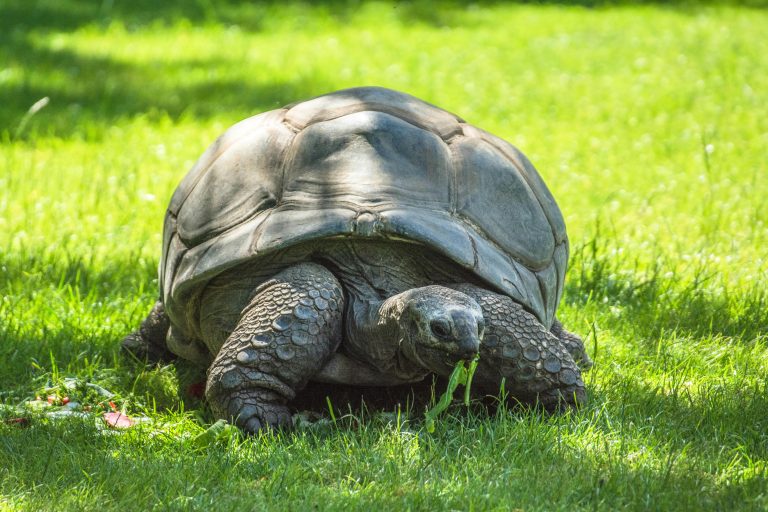
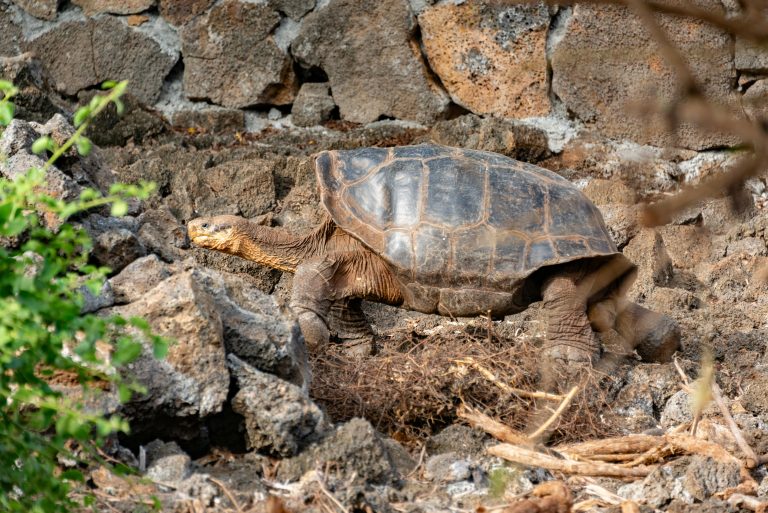
![Chicken Turtle Care For Beginners [Comprehensive Handbook]](https://spreadhapiness.com/wp-content/uploads/2024/04/chicken-turtle-4-768x509.jpg)
